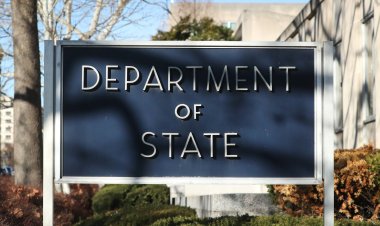'Healing the scars:' New York to study state reparations
The commission, which will wrap up its work by the summer of 2025, will only make recommendations.


ALBANY, N.Y. — New York on Tuesday created a commission to study potential reparations for state residents of African descent, making it the second state after California to do so.
The commission, which will report its findings in 2025, will have a broad charge. It will examine New York’s legacy of slavery and discrimination and will make recommendations on both statutory changes and potential payments to combat generational wealth inequality.
“In New York, we like to think we’re on the right side of this — slavery was a product of the South, the Confederacy,” Hochul said while signing the bill at an event in Manhattan. “What is hard to embrace is that our state also flourished from that slavery. It’s not a beautiful story, but it’s the truth.”
Hochul was joined by Black leaders in the state Legislature and the Rev. Al Sharpton in the bill signing. They praised the measure as a way to rectify generations of wrongs caused by slavery, such as housing and job discrimination. The panel will look at ways, in addition to any financial payments, to address racial and structural inequities in the state.
“Some of the media will act like [Hochul] met us here and she gave Rev. Al and all of us a check for a billion dollars,” Sharpton said. “But that’s not what this does. This is the beginning of healing the scars.”
The commission, which will wrap up its work by the summer of 2025, will only make recommendations. Anything it proposes will need to be passed as a bill by the Democratic-led Legislature and governor.
New York is the second major state to establish such a commission. One in California wrapped up its work earlier this year by recommending payments of as much as $1.2 million per eligible resident over time.
Leaders there, though, have not yet acted on any of the recommendations, with officials such as Gov. Gavin Newsom casting doubt on the potential for payments. But California’s commission has helped put the issue of historic racial injustice front-and-center with the Legislative Black Caucus preparing a push for some of its ideas in 2024.
Hochul admitted she has had “some concerns about this" as she pressured by supporters and detractors over the bill, which was approved in June by state lawmakers.
“There’s a part of me that worries about leaping into this conversation because of the racial division and strife it could sow. People will say what does this have to do with us in 2023?” she said.
“Anybody that thinks that racism and hatred for Blacks no longer exists, tell that to the families of the 10 victims at the grocery store in the massacre in Buffalo, who once again will be staring at empty chairs at their Christmas dinner.”
Hochul’s first bid for a full term in 2022 was defined by an effort to win over Black voters, after early polls showed they were less likely to support her than previous statewide Democratic statewide candidates. On Tuesday, the state's first woman governor received the praise of a long list of top Black leaders.
“It took a courageous young white woman from Western New York to say I’m going to do what all the urban men before me wouldn’t,” Sharpton said.
Assembly Speaker Carl Heastie, the first Black man to have a top role in New York’s Legislature, said the bill signing is “not going to be popular.”
But, Heastie said, “This is one of those moments where you put what was right over what may have been perceived as the political thing to do.”
State GOP chair Ed Cox criticized the bill.
“Governor Hochul's decision to endorse this divisive and unproductive reparations study is misguided," he said in a statement. "Instead of focusing on the issues that truly matter to New Yorkers, like our ongoing immigration crisis, crime, and the exodus of residents from our state, she's chosen to reopen old wounds and stoke racial tensions for political gain."












